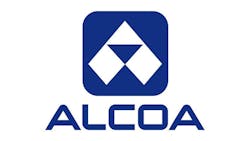New Alcoa Technique May Boost Aluminum-Intensive Vehicles
Alcoa has granted an exclusive global distribution license for a new pre-treatment bonding technology for aluminum sheet, extrusions, and castings that it claims will improve joining and assembly of aluminum components and structures— a critical advantage in the effort to increase aluminum content in automotive vehicles.
Chemetal develops and manufactures specialty chemical products, including metalworking fluids, drawing and stamping compounds, cleaners, rust preventatives, and surface treatments.
The terms of the license were not announced.
“We look forward to partnering with Chemetall to provide Alcoa 951 to help enable commercialization of adhesive bonding of aluminum structures in high-volume automotive applications. This, in turn, will drive lighter vehicle weights and enable the integration of sheet, extrusions, and castings to ultimately improve fuel efficiency,” stated Raymond Kilmer, Alcoa exec. vice president and chief technology officer.
“Alcoa 951" is a patented, chrome-free pre-treatment that helps to produce more durable bonds between an aluminum substrate and a structural adhesive used in an assembly process.
“The surface treatment is applied through an immersion or spray application in which the organic components bond with oxides present on the metal surface,” Alcoa explained in its statement. “The molecular structure chemically binds aluminum oxide with one end, and adhesive with the other. This creates a strong link at the molecular level resulting in lasting, durable joints for automotive structures.”
Alcoa reported that in customer trials, Alcoa 951 was demonstrated to be nine times more durable than the titanium-zirconium applications that are more widely adopted.
Because the surface treatment is “minimal,” the developer called it “essentially ‘transparent’ ” in subsequent automotive manufacturing processes, like forming, spot welding, and painting.
Many other commercially available conversion coatings contain heavy metals: they are thicker, and potentially bring hazardous environmental concerns. They also may diminish performance in subsequent manufacturing processes.
Alcoa said the appeal of Alcoa 951 is its repeatability and simplicity.
Aluminum represents the second largest-volume component material in automotive vehicles, but Alcoa referenced research that the volume of aluminum in cars may almost double by 2025, as automakers seek more fuel efficiency by reducing vehicle mass. New aluminum applications in heat exchangers, wheels, drive shafts, engine blocks, hoods, and deck lids, as well as aluminum-intensive vehicles (AIVs) involving the ‘body in white’ built in aluminum. As OEMs use greater volumes of aluminum, new joining and assembly methods will be required.
"'Alcoa 951' is a perfect example of Alcoa Technology Advantage at work to create value for our customers," stated Kay Meggers, exec. vice president and group president of Alcoa Global Rolled Products. "The use of this technology is helping to enable greater use of aluminum throughout the industry and helping make mass-produced aluminum-intensive vehicles possible. This ultimately saves significant fuel for consumers who say fuel efficiency is a top factor in their purchase decision."
About the Author
Robert Brooks
Content Director
Robert Brooks has been a business-to-business reporter, writer, editor, and columnist for more than 20 years, specializing in the primary metal and basic manufacturing industries. His work has covered a wide range of topics, including process technology, resource development, material selection, product design, workforce development, and industrial market strategies, among others.
